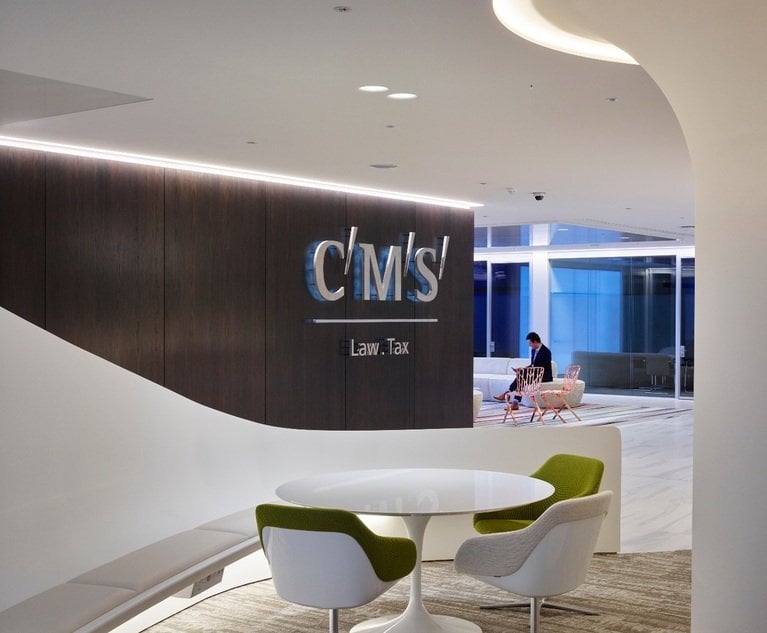The coronavirus crisis is driving a “flight to quality” among buyers of legal service—a move that will further strengthen the legal arms of the Big Four accounting firms, according to PwC Global Legal Services head Tony O’Malley.
“I’m feeling positive about how we’re placed over this next period in the crisis and I’m confident that we’re going to come out of it stronger,” he said.
For the last decade or so, O’Malley said clients have increasingly sought multidisciplinary firms such as the Big Four consultancies, which have the global connectivity that comes from being in multiple jurisdictions and the kind of technology that can help keep costs down.
“The pandemic has the potential to really accelerate the transformation that we’ve been experiencing over the last 10-15 years,” he said.
There is a growing appetite from business to receive integrated services that address problems as a whole—not just piecemeal, he said. And the crisis is driving a “flight to quality” in legal services, just as it did during the global financial crisis.
Some traditional law firms may also benefit, O’Malley noted.
“Clients do go to brands they know and trust and they do go to platforms that have got depth and scale. And so, for those law firms that are on that trajectory and have established platforms and brands, I think they will emerge stronger,” he said.
“I think for those that don’t and are less clearly differentiated, it could be a challenge.”
In the current crisis, lawyers and staff at PwC, like those at other legal and professional services firms, are mostly working from home. And O’Malley said this has gone smoothly because the firm already had technology and systems in place to allow for working remotely.
“To the extent that one can feel prepared, we felt well prepared from a technology and a logistics perspective as a network when we needed to respond quickly to the lockdowns,” said O’Malley, who is working from his home in Sydney. “And we’ve been able to adapt fairly quickly without much impact on productivity.”
Partners are hosting regular check-ins with their teams, focusing on well-being, client matters and resourcing, and are using a platform called Worklayer to allocate and manage workflow “which means people aren’t getting lost in the process.”
The firm recognizes that its staff needs social contact with colleagues as well. In the U.K., the firm is doing its own version of a television program called “Through the Keyhole,” where instead of guessing which celebrity owns the home on a show, they try to guess which partner owns the home.
In Australia, the firm is running a competition similar to the Netflix series “Nailed It!,” where home bakers with a terrible track record try to recreate an edible masterpiece.
O’Malley expects the global increase in people working remotely that has arisen from the need for social distancing will “destigmatize” working from home, and this will drive an increased focus on the value of the work being delivered rather than the time lawyers spend at their desks and at the workplace.
“That’s a positive shift from my perspective. This new environment will allow our people to be innovative and creative around how they deliver that value and to create greater levels of commitment and trust within the teams than probably has been there before,” he said.
This, in turn, will drive more billing by value rather than hours spent on a matter. O’Malley said, adding that PwC Legal already prices less on a rate card than traditional firms and he expects this will continue.
Nevertheless, a protracted crisis will have a negative impact on billings, O’Malley said.
“We, like every other business, are keeping a close eye on cash flow and doing what we can to keep our own house in order … and not lose sight of the fact that we want to come out of this in good shape,” he said.
Meanwhile, the legal arm of PwC, which has about 3,700 lawyers around the globe, has been kept busy as a result of the COVID-19 pandemic.
“The demand for crisis management support has definitely spiked, and we in the legal network work closely with our advisory colleagues on supporting businesses with everything from how they meet their continuous disclosure obligations to how they are going to address short-term cash flow and liquidity issues, and health and safety issues for their teams,” he said.
PwC also has had done a few urgent business continuity assessments for multinationals.
“People are not traveling and therefore if you’re running a multinational manufacturing business, you may not be able to get around to check production lines and check supply lines,” O’Malley said. “So what does that mean in terms of essential personnel over that period, and are you going to be able to continue to supply the way that you’re contractually committed to?”
Clients want urgent advice on contracts and delivery and logistics.
Not every practice area is busy, however. Many larger mergers and acquisitions deals that were relying on credit markets for financing have either been pushed back or have disappeared completely and clients’ discretionary legal projects have been put on hold, O’Malley said.
But demand for advice on corporate restructuring, both insolvent and solvent restructuring, has spiked as firms respond to the liquidity challenge, he noted.
“Many of the corporate partners and lawyers have pivoted to do more of the restructuring work, and it sits as a close adjacency to general corporate anyway, so it’s not a stretch for them.”
O’Malley expects insolvency and restructuring work to remain strong once the health crisis has passed. He also expects an uptick in M&A deals at that time.
“There’s a good chance that once countries emerge from the crisis, it could be a very, very active deals market because those who come out of the crisis in reasonable shape will be looking to grow and grow quickly,” he said.
Read More
PwC Appoints New Head of Global Legal Services
NOT FOR REPRINT
© 2024 ALM Global, LLC, All Rights Reserved. Request academic re-use from www.copyright.com. All other uses, submit a request to [email protected]. For more information visit Asset & Logo Licensing.










